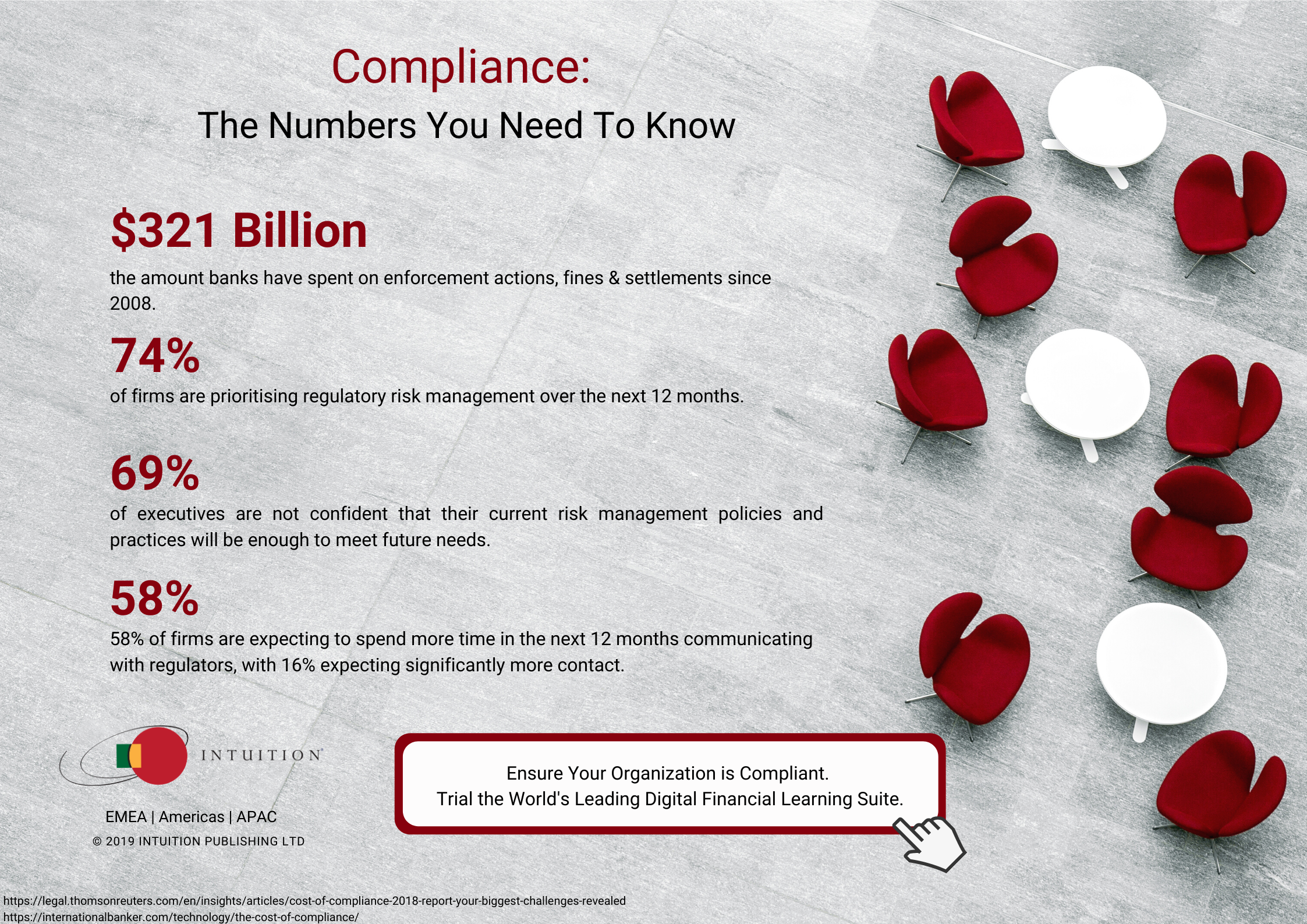Compliance: The Numbers You Need To Know
Compliance & regulation is a growing concern for many industries, especially for financial services. In the past, many organizations have viewed compliance as an expensive inconvenience but when the correct policies & procedures are adopted, it can be a significant cost saver.
It is evident managing compliance requires financial resources however, it doesn’t amount to the costs associated with a breach, not to mention the potential for long-term damages incurred to reputation. Firms that exceed the minimum regulatory requirements will not only minimize the risk of fines but also enhance their long-term reputations.
“It takes less time to do things right than to explain why you did it wrong”
Be sure to read the compliance statistics below and reflect on how your firm’s policies are prepared to deal with compliance and regulation needs in 2020.
$321 Billion: the amount banks have spent on enforcement actions, fines & settlements since 2008.
Many financial institutions are still making the same mistakes they made during the lead up to the global financial crisis. Corners are being cut and firms are paying the price for it. Recent trends have illustrated that Anti-Money Laundering (AML) is a huge issue for many banks around the world. From January to April 2019, global authorities issued an estimated $7.7 billion in AML fines – up from $1.16 billion for the same time frame in 2018.
Between January 2002 and April 2019, the US imposed a total value of $19.85 billion in AML fines, while the UK imposed $1.23 billion between just January 2019 and April of the same year. These statistics are continuously growing and reflect the trend of global and domestic regulators focusing on AML.
74% of firms are prioritising regulatory risk management over the next 12 months.
69% of executives are not confident that their current risk management policies and practices will be enough to meet future needs.
Organizational policies constantly need to evolve and update to remain both effective and relevant. 40% of organizations rated their compliance training programs as basic or reactive while 47% claimed that keeping policies current with changing regulations was their number one challenge. Effective policy and procedure management requires regular reviews, especially within industries where there are high levels of regulation and risk such as the financial services industry.
Every year, new policies are made and implemented, consequently, risk management policies and practices should be adjusted on a rolling basis. Effective policies will help in guiding training requirements and outline standards that must be met.
58% of firms are expecting to spend more time in the next 12 months communicating with regulators, with 16% expecting significantly more contact.
As previously mentioned, there are growing trends of global and domestic regulators clamping down on organizations to spot criminal activity, whether deliberate or not. There has been a widespread shift in the change of attitudes and behaviours within financial organizations towards supervision and smarter working.
If your firm is not adequately prepared to meet the minimum requirements, you will pay the penalty. There is a common trend of firms beginning to focus more and more on their compliance program and positioning themselves to benefit from their policies and procedures. Effective compliance programs outline expectations for employee behavior and aid staff in staying focused on important organizational goals and objectives. The time to veer away from a reactive regulatory approach has come, firms within the financial services industry need to adopt a proactive approach and begin to reap the benefits.




